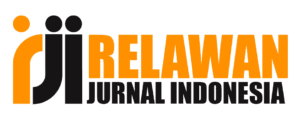Tourism Security in the Age of Overtourism: A Qualitative Investigation in Bali
Abstract
This research investigates the intricate dynamics of tourism security in Bali, particularly in the context of overtourism, which has led to significant socio-economic and security challenges. Utilizing a qualitative approach, the study engages with various stakeholders, including local residents, tourism authorities, law enforcement, and community leaders, to explore their perceptions and experiences related to tourism security. Data is collected through semi-structured interviews, allowing for an in-depth understanding of the complexities surrounding security risks in high-density tourist areas such as Kuta, Canggu, Petitenget, Kerobokan, and Seminyak. The findings reveal a notable increase in specific types of crime, including theft and scams, exacerbated by the influx of tourists, which has strained local resources and heightened tensions within communities. The research further examines the impact of overtourism on traffic safety, highlighting the challenges posed by increased vehicle volume and inadequate infrastructure. Local authorities have implemented various measures, such as improved traffic management systems and community engagement initiatives, to address these issues. Additionally, the study identifies the role of international travel advisories and perceptions of safety in influencing tourism demand, which in turn affects local security policies. Despite the collaborative efforts among stakeholders, significant barriers remain, including communication gaps and resource limitations, which hinder the effectiveness of tourism security policies. The study underscores the necessity for a more integrated approach that incorporates community perspectives and sustainable practices into tourism security frameworks. By addressing these gaps, the research aims to contribute to the development of effective strategies that enhance the safety and well-being of both tourists and local communities in Bali. Ultimately, this study highlights the importance of understanding the socio-economic dynamics of tourism security in fostering a resilient and sustainable tourism environment in the face of overtourism. The limitation of this study is its qualitative focus, which may not fully capture broader security trends. It also centers on high-density areas, overlooking emerging destinations. Future research could use mixed methods and comparative analyses to enhance understanding and policy effectiveness
References
Adawiah, A. (2024). Mejora de la percepción del turista: comparación de plataformas de información y gestión para el desarrollo de marcas turísticas en bali y yogyakarta. Revista De Gestão Social E Ambiental, 18(7), e06918. https://doi.org/10.24857/rgsa.v18n7-109
Akamavi, R., Ibrahim, F., & Swaray, R. (2022). Tourism and troubles: effects of security threats on the global travel and tourism industry performance. Journal of Travel Research, 62(8), 1755-1800. https://doi.org/10.1177/00472875221138792
Álvarez-Sousa, A. (2018). The problems of tourist sustainability in cultural cities: socio-political perceptions and interests management. Sustainability, 10(2), 503. https://doi.org/10.3390/su10020503
AYUNINGSASI, A. (2022). Women and work choices in the tourism sector: a form of women empowerment. Journal of Tourism Economics and Policy, 2(3), 186-191. https://doi.org/10.38142/jtep.v2i3.386
Bahnasy, N. (2023). The interplay of tourism economy and food security in dessert-prone agricultural heritage sites. Journal of Humanities and Applied Social Sciences, 6(2), 103-127. https://doi.org/10.1108/jhass-08-2023-0090
Balcılar, M., Eyden, R., Inglesi‐Lotz, R., & Gupta, R. (2014). Time-varying linkages between tourism receipts and economic growth in south africa. Applied Economics, 46(36), 4381-4398. https://doi.org/10.1080/00036846.2014.957445
Bertocchi, D. and Visentin, F. (2019). “the overwhelmed city”: physical and social over-capacities of global tourism in venice. Sustainability, 11(24), 6937. https://doi.org/10.3390/su11246937
Bhaskara, G. and Filimonau, V. (2021). The covid-19 pandemic and organisational learning for disaster planning and management: a perspective of tourism businesses from a destination prone to consecutive disasters. Journal of Hospitality and Tourism Management, 46, 364-375. https://doi.org/10.1016/j.jhtm.2021.01.011
Buda, D. (2016). Tourism in conflict areas. Journal of Travel Research, 55(7), 835-846. https://doi.org/10.1177/0047287515601253
Carballo, R., León, C., & Carballo, M. (2017). The perception of risk by international travellers. Worldwide Hospitality and Tourism Themes, 9(5), 534-542. https://doi.org/10.1108/whatt-07-2017-0032
Darmaya, I. (2023). Penerapan cleanliness health safety environmental sustainability di sektor pariwisata. Jurnal Ilmiah Pariwisata Dan Bisnis, 2(9), 1950-1960. https://doi.org/10.22334/paris.v2i9.530
Dimitrovski, D., Crespi‐Vallbona, M., & İoannides, D. (2021). How do locals perceive the touristification of their food market? the case of barcelona's la boqueria. International Journal of Tourism Research, 24(1), 93-106. https://doi.org/10.1002/jtr.2486
Duncan, J., Brown, N., Hughes, J., Trudgett, S., Crilly, J., Rothwell, S., & Rosengren, D. (2019). Security interventions are frequently undocumented in emergency department clinical notes. Emergency Medicine Australasia, 31(5), 797-804. https://doi.org/10.1111/1742-6723.13257
Eyisi, A., Lee, D., & Trees, K. (2020). Facilitating collaboration and community participation in tourism development: the case of south-eastern nigeria. Tourism and Hospitality Research, 21(3), 275-288. https://doi.org/10.1177/1467358420966035
Glowka, G. and Zehrer, A. (2019). Tourism family-business owners’ risk perception: its impact on destination development. Sustainability, 11(24), 6992. https://doi.org/10.3390/su11246992
Hall, C. M., Timothy, D. J., & Duval, D. T. (2004). Security and Tourism: Towards a New Understanding? Journal of Travel & Tourism Marketing, 15(2–3), 1–18. https://doi.org/10.1300/J073v15n02_01
He, X., Cai, C., & Shi, J. (2023). Evaluation of tourism ecological security and its driving mechanism in the yellow river basin, china: based on open systems theory and dpsir model. Systems, 11(7), 336. https://doi.org/10.3390/systems11070336
Hlengwa, D. (2021). Placemaking and visitors’ reviews of the golden mile of durban. Acta Commercii, 21(1). https://doi.org/10.4102/ac.v21i1.921
Huong, P. (2017). Finding important factors affecting local residents’ support for tourism development in ba be national park, vietnam. Forest Science and Technology, 13(3), 126-132. https://doi.org/10.1080/21580103.2017.1354337
Juniawan, I., Karini, N., & Dewi, L. (2017). Karakteristik dan persepsi kenyamanan wisatawan mancanegara di pantai kuta bali. Jurnal Ipta, 5(1), 24. https://doi.org/10.24843/ipta.2017.v05.i01.p06
Kim, J. and Seo, Y. (2018). An evolutionary perspective on risk taking in tourism. Journal of Travel Research, 58(8), 1235-1248. https://doi.org/10.1177/0047287518807579
Ko, Y. and Song, B. (2021). Application of uavs for tourism security and safety. Asia Pacific Journal of Marketing and Logistics, 33(8), 1829-1843. https://doi.org/10.1108/apjml-07-2020-0476
Koens, K., Postma, A., & Papp, B. (2018). Is overtourism overused? understanding the impact of tourism in a city context. Sustainability, 10(12), 4384. https://doi.org/10.3390/su10124384
Li, X., Kim, J., & Lee, T. (2021). Collaboration for community-based cultural sustainability in island tourism development: a case in korea. Sustainability, 13(13), 7306. https://doi.org/10.3390/su13137306
Liu-Lastres, B. and Cahyanto, I. (2020). Exploring the host-guest interaction in tourism crisis communication. Current Issues in Tourism, 24(15), 2097-2109. https://doi.org/10.1080/13683500.2020.1817876
Liu, X., Li, Z., Zhang, Q., & Zhang, Y. (2021). Understanding news coverage of tourism safety: a comparative analysis of visitors and non-visitors. Tourism Review, 76(4), 788-808. https://doi.org/10.1108/tr-10-2020-0500
Llupart, M. (2022). Theoretical model for the analysis of community-based tourism: contribution to sustainable development. Sustainability, 14(17), 10635. https://doi.org/10.3390/su141710635
Mihalič, T. and Kuščer, K. (2021). Can overtourism be managed? destination management factors affecting residents’ irritation and quality of life. Tourism Review, 77(1), 16-34. https://doi.org/10.1108/tr-04-2020-0186
Monteiro, A., Eusébio, C., Carneiro, M., Madaleno, M., Robaina, M., Rodrigues, V., … & Borrego, C. (2021). Tourism and air quality during covid-19 pandemic: lessons for the future. Sustainability, 13(7), 3906. https://doi.org/10.3390/su13073906
MORGAN, M., Okon, E., Emu, W., OLUBOMI, O., & EDODI, H. (2021). Tourism management: a panacea for sustainability of hospitality industry. Geojournal of Tourism and Geosites, 37(3), 783-791. https://doi.org/10.30892/gtg.37307-709
Mostafa, R. and Hefny, L. (2016). Exploring the mediating and moderating role of services marketing strategy and safety and security measures in the tourism industry. International Journal of Customer Relationship Marketing and Management, 7(1), 1-26. https://doi.org/10.4018/ijcrmm.2016010101
Mutana, S. and Mukwada, G. (2018). Can mountain route tourism work for the poor? exploring worldviews from maluti route in the drakensberg region of south africa. Tourism and Hospitality Research, 20(1), 18-30. https://doi.org/10.1177/1467358418791312
Perkumienė, D. and Pranskūnienė, R. (2019). Overtourism: between the right to travel and residents’ rights. Sustainability, 11(7), 2138. https://doi.org/10.3390/su11072138
Philkhana, R. and Khan, A. A. (2024). Overtourism in goa: analyzing the resident’s perception using social exchange theory. IOP Conference Series: Earth and Environmental Science, 1366(1), 012041. https://doi.org/10.1088/1755-1315/1366/1/012041
Purnamawati, I. (2021). Sustainable tourism development through improving the role of customary village. International Journal of Social Science and Business, 5(1). https://doi.org/10.23887/ijssb.v5i1.30778
Putra, I., Mudana, I., Oka, I., & Nova, M. (2022). Pura luhur tamba waras: aspects of sustainable tourism and spiritual tourism. International Journal of Green Tourism Research and Applications, 4(2), 108-114. https://doi.org/10.31940/ijogtra.v4i2.108-114
Rahmawati, P., Jiang, M., & DeLacy, T. (2019). Framework for stakeholder collaboration in harnessing corporate social responsibility implementation in tourist destination to build community adaptive capacity to climate change. Corporate Social Responsibility and Environmental Management, 26(6), 1261-1271. https://doi.org/10.1002/csr.1745
Seabra, C., Dolničar, S., Abrantes, J., & Kastenholz, E. (2013). Heterogeneity in risk and safety perceptions of international tourists. Tourism Management, 36, 502-510. https://doi.org/10.1016/j.tourman.2012.09.008
Šerić, N., Stojanović, A., & Bagarić, L. (2022). The influence of the security perception of a tourist destination on its competitiveness and attractiveness. Зборник Радова Економског Факултета У Источном Сарајеву, 11(24). https://doi.org/10.7251/zrefis22240363s
SHAARI, M., RAFEI, A., NANGLE, B., Esquivias, M., & HUSSAIN, N. (2022). The impact of violent crime on tourist arrivals in malaysia. Geojournal of Tourism and Geosites, 43(3), 1148-1154. https://doi.org/10.30892/gtg.43336-930
Suarka, F. (2023). Service recovery strategy for non-star accommodation in the seminyak area, kuta, bali. European Modern Studies Journal, 7(4), 390-400. https://doi.org/10.59573/emsj.7(4).2023.35
Tarlow, P. (2014). Tourism security: Strategies for effectively managing travel risk. Elsevier.
Tayebi, D. and Rahman-nasab, J. (2014). Security and growth in tourism industry in yasuj. Marketing and Branding Research, 1(1), 27-42. https://doi.org/10.33844/mbr.2014.60368
Timothy, D. J. (2021). Tourism and political boundaries. Routledge.
Wang, J., Liu-Lastres, B., Ritchie, B., & Pan, D. (2019). Risk reduction and adventure tourism safety: an extension of the risk perception attitude framework (rpaf). Tourism Management, 74, 247-257. https://doi.org/10.1016/j.tourman.2019.03.012
Wendt, J., Grama, V., Ilieş, G., Mikhaylov, A., Borza, S., Herman, G., & Bógdał-Brzezińska, A. (2021). Transport infrastructure and political factors as determinants of tourism development in the cross-border region of bihor and maramureş. a comparative analysis. Sustainability, 13(10), 5385. https://doi.org/10.3390/su13105385
Yousaf, A., Amin, I., & Santos, J. (2018). Tourists’ motivations to travel: a theoretical perspective on the existing literature. Tourism and Hospitality Management, 24(1), 197-211. https://doi.org/10.20867/thm.24.1.8
Zhu, H., Liu, J., Wei, Z., Li, W., & Lei, W. (2017). Residents’ attitudes towards sustainable tourism development in a historical-cultural village: influence of perceived impacts, sense of place and tourism development potential. Sustainability, 9(1), 61. https://doi.org/10.3390/su9010061Cole, S. and Browne, M. (2015). Tourism and water inequity in bali: a social-ecological systems analysis. Human Ecology, 43(3), 439-450. https://doi.org/10.1007/s10745-015-9739-z
Copyright (c) 2025 Journal of Governance and Local Politics (JGLP)

This work is licensed under a Creative Commons Attribution-NonCommercial-NoDerivatives 4.0 International License.










